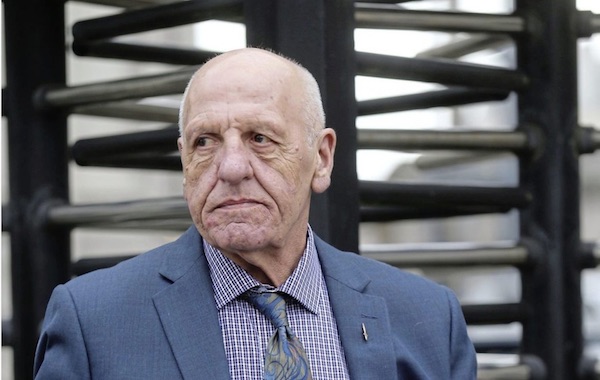
There have been calls for the non-jury Special Criminal Court in Dublin to be shut down after five republicans were jailed on the basis of a ‘farcical’ statement by a police superintendent and surveillance evidence which had been deemed illegal.
The court of three judges accepted defence arguments that the Garda National Surveillance Unit, whose spying evidence was presented before the court, had unlawfully retained materials. Despite this, it allowed the Gardai to rely on that evidence when making allegations that the republicans, four men and one woman were involved in an IRA meeting.
There was shock when 70-year-old Kevin Hannaway, one of the ‘Hooded Men’ who was subjected to torture by British forces when interned in the early 1970s, was jailed for three years and nine months. The sentence came despite Mr Hannaway suffering from heart problems due to post-traumatic stress triggered by his imprisonment.
Four others, Sean Hannaway and Eva Shannon from Belfast, and David Nooney and Edward O’Brien from Dublin, were handed down sentences of up to five and a half years. All were returned to Portlaoise jail, except Eva Shannon, who is believed to have been sent to solitary confinement in Limerick jail.
Outside the court, a statement was read out on behalf of those imprisoned.
“We do not accept the guilty verdicts returned by this Court in our trials, and we are not surprised at the sentences handed down today,” they said.
“We have been accused in a system which is designed to secure convictions as opposed to justice. This system denies us a right to a trial before a jury of our peers. Furthermore, in this trial, we have seen that this system excuses wrongdoing by State authorities.”
They denounced the Special Criminal Court as a device “to secure convictions”.
“The acceptance of the word of a Garda Chief Superintendent as evidence against three of us is nothing short of farcical,” they said.
“This is especially so given his inability to even answer general questions without hiding behind the security of the State and his failure to answer basic questions about basic details of the accused in this trial.”
“The ‘Special Criminal Court’ is a blight on the administration of justice in the 26 Counties. It has been condemned and had calls for its abolition from Amnesty International, The Irish Council for Civil Liberties and the United Nations Human Rights Committee among many others.
“We now call upon those NGOs and others concerned with the administration of justice to closely examine the workings of the ‘Special Criminal Court’, its extraordinarily high conviction rate when compared to jury trials, and its failure to uphold the rights of Irish citizens accused before it, often with no substance other than exceptions to the normal rules of evidence.”
![[Irish Republican News]](https://republican-news.org/graphics/title_gifs/rn.gif)
![[Irish Republican News]](https://republican-news.org/graphics/title_gifs/harp.gif)

